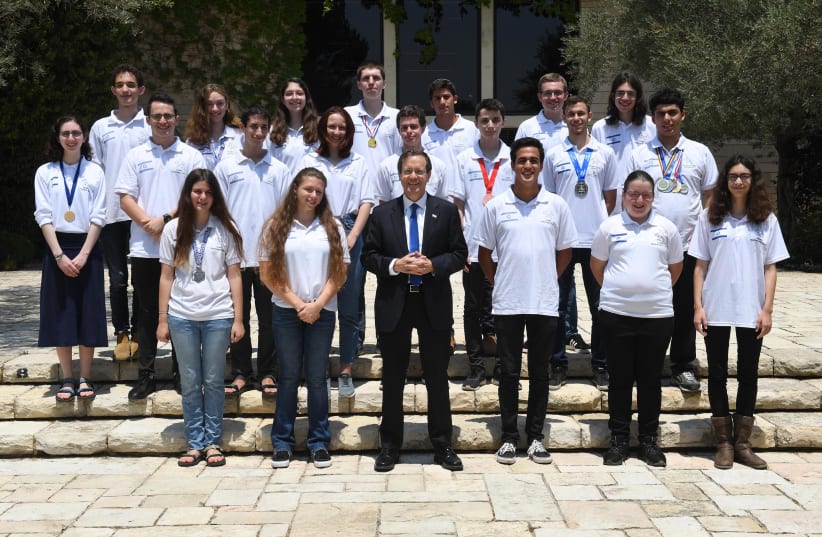Herzog invited the team of high schoolers, who participated in the recent international science, physics, chemistry, mathematics and computer sciences Olympics, and came home with a total of 25 medals: five gold, 12 silver, and eight bronze.
As talented as Israel’s sportsmen and women are, they have never come close to winning the number of medals won by Israelis in the Paralympics and the Science and Maths Olympics. In other words, people with disabilities who are challenged 24/7 are psychologically better at meeting challenges of different kinds; and the brain seems to work better than feet and arms in the area of science.
The students were trained in the framework of a joint initiative by the Education Ministry, the Center for Future Sciences, which is under the auspices of the Maimonides Foundation; and the country’s universities.
Taking pride together with Herzog in the students’ achievements were Education Minister Yifat Shasha-Biton, Future Sciences Chairman Dr. Shimshon Shoshani and his colleagues, and of course the medal winners, among them Adi Rivkin from Haifa, who won a silver in computer sciences; and bronze medalists Reut Goldberg from Haifa, whose field was physics, Yaara Shulman from Herzliya, in mathematics, and Igor Makibush from Tirat Zvi in chemistry.
Goldberg told the president that the science Olympics is like a club in which it is possible to meet people of different ages, nationalities, and disciplines who open a world of possibilities in science and technology-related professions, and who can explain what each would entail.
“Our hearts were bursting when our medalists returned from Tokyo,” said Herzog, “but today I have the opportunity to meet with medalists from the scientific Olympics who have brought us great pride. Now we have true Israeli spirit both in body and mind. The Israeli brain is on the world map. You are our scientists of the future – our Nobel Prize laureates of tomorrow – programmers and cyber specialists, inventors and hi-tech entrepreneurs.”
Herzog said that he was also happy to see good female representation in the team.
Shoshani said that the purpose of the joint initiative was to develop excellence in scientific, economic and cultural leadership, and to prepare Israel’s young students for future scientific Olympics in which everything is possible, and to thus enable Israel to benefit from their exceptional achievements.
